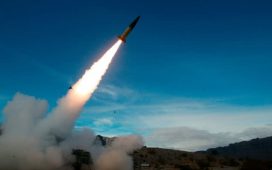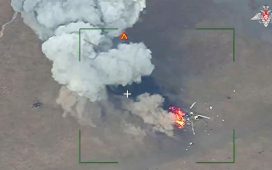NATO is turning its attention to China, and Beijing is not happy about it.
China’s Foreign Ministry reacted sharply to the new updated NATO “strategic doctrine” endorsed by the U.S. and its allies at the Madrid summit of the Western military alliance that concluded Thursday.
While heavily focused on the threat from Russia, the NATO strategy blueprint for the first time in its 75-year history singled out China as a “systemic challenge to Euro-Atlantic security” and condemned Beijing’s warming ties with Moscow.
“The deepening strategic partnership between the People’s Republic of China and the Russian Federation and their mutually reinforcing attempts to undercut the rules-based international order run counter to our values and interests,” the NATO document said.
Chinese Foreign Ministry spokesman Zhao Lijian expressed “serious concern and resolute protest” over the NATO rhetoric.
“China is gravely concerned and firmly opposed to this,” Mr. Zhao said, according to the state-controlled Xinhua news agency.
“The so-called NATO’s new Strategic Concept ignores facts, distorts the truth, … vilifies China’s foreign policy, makes irresponsible statements about China’s natural military development and its national defense policy, promotes confrontation and conflict [and] is filled with the Cold War mentality and ideological prejudices,” Mr. Zhao said at his regular briefing with reporters Thursday in Beijing.
The Biden administration had been pushing for the inclusion of strong language on China in the strategic doctrine, although some European allies were hesitant to go as far as Washington. U.S. officials argue there is plenty in China’s recent behavior that is of direct concern to the transatlantic alliance.
Chinese President Xi Jinping and Russian President Vladimir Putin endorsed a bilateral relationship “without limits” just weeks before the Kremlin launched its invasion of neighboring Ukraine in late February.
China did not endorse the Russian military move and has observed some sanctions imposed on Moscow, but its official press has strongly backed Russia’s version of events in Ukraine and argued that the U.S. and NATO bear the blame for provoking the war.
Mr. Zhao earlier this week accused NATO leaders of seeking to move beyond their regional focus and assert influence in the Pacific as well, with the clear goal, he said, of containing China’s rise.
“NATO should stop drawing ideological lines, stoking political confrontation, or seeking to start a new Cold War,” he said Wednesday. “It should discard the Cold War mentality and zero-sum game mindset and stop making enemies. NATO has already disrupted Europe. It should not seek to destabilize Asia and the world.”









